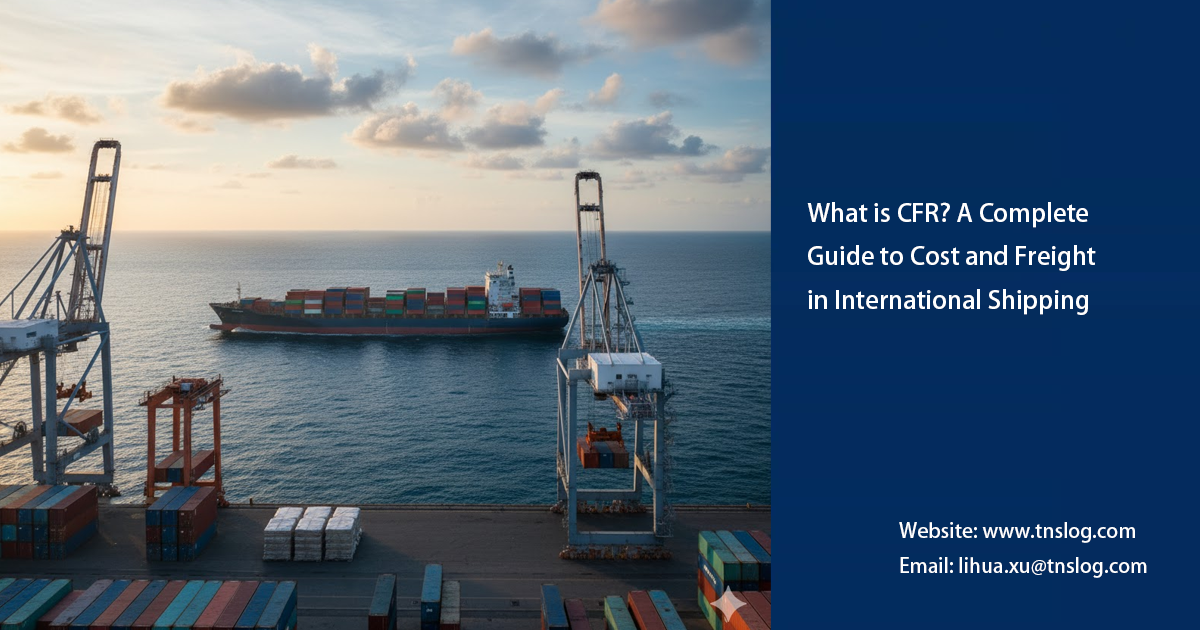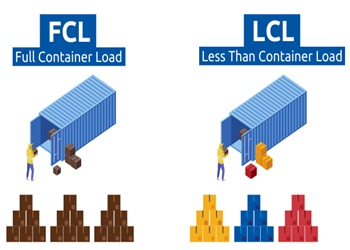Understanding the Differences Between LCL and FCL Shipping
When it comes to shipping your goods internationally, you’ve got some big decisions to make—especially when it comes to choosing between LCL (Less than Container Load) and FCL (Full Container Load) shipping. Picking the right option can save you money, time, and a lot of headaches. So, let’s break down what each one means, and when you should choose one over the other.

What is LCL Shipping?
LCL (Less than Container Load) shipping is pretty much what it sounds like. If you don’t have enough goods to fill an entire container, you can share space with other consignee shipments. This way, you only pay for the space your stuff takes up, making it a more budget-friendly option for smaller shipments.
Why You Might Like LCL Shipping:
- It’s Cost-Effective for Smaller Loads: Since you’re only paying for the space you use, LCL can be much cheaper if you’re shipping smaller volumes.
- You Don’t Have to Wait: You can ship your goods as soon as they’re ready, without waiting to fill an entire container.
- Perfect for Small Businesses: If you’re running a small business or just starting out, LCL lets you ship without blowing your budget.
The Downsides of LCL:
- It Can Take Longer: Your goods are sharing space with others, so there might be delays in loading, unloading, and clearing customs.
- Higher Risk of Damage: Since your shipment is mixed in with others, there’s a slightly higher chance that something could get damaged.
- More Paperwork: Because LCL involves multiple shippers, the customs process can be a bit more complicated.
If you’re interested in diving deeper into how LCL shipping works, check out our LCL Shipping Guide for more details.

What is FCL Shipping?
On the flip side, FCL (Full Container Load) shipping means you’re renting the entire container just for your goods. Whether you fill it up or not, the whole container is yours. This method is usually the go-to for larger shipments or goods that need to be handled carefully.
Why You Might Choose FCL Shipping:
- Faster Shipping Times: Since the container is dedicated to your shipment, it usually gets where it’s going faster.
- Less Risk of Damage: Your goods are the only ones in the container, so there’s less chance of something going wrong.
- Simpler Documentation: With only your goods in the container, the paperwork and customs process is usually more straightforward.
The Downsides of FCL:
- Can Be Costly for Small Loads: If you don’t have enough goods to fill the container, you’re still paying for the whole thing, which might not be cost-effective.
- Less Flexibility: You might have to wait until you have enough goods to fill the container before you can ship.
Curious about how FCL could benefit your shipping needs? Take a look at our FCL Shipping Benefits page for more insights.

So, How to choose between LCL and FCL Shipping?
Deciding between LCL and FCL shipping really depends on a few key things: the size of your shipment, how much you’re willing to spend, and how fast you need your goods to arrive
Go with LCL if:
- You’re shipping a smaller load and want to save money.
- You need to ship regularly and don’t want to wait to fill a container.
- Budget is a top priority for your business.
Go with FCL if:
- You have a larger shipment that can fill up a container.
- You need your goods to arrive as quickly as possible.
- You’re shipping fragile or high-value items and want to minimize the risk of damage.
If you’re stuck in the middle and your shipment is too big for LCL but too small for FCL, freight consolidation could be the answer. This option lets you combine your shipment with others heading to the same place, giving you some of the cost benefits of FCL without needing to fill a whole container.
Learn more about how freight consolidation can help you strike the perfect balance between cost and convenience.

Both LCL and FCL shipping have their pros and cons, and the best choice depends on your specific needs. Whether you’re looking to save money on smaller shipments with LCL or speed things up with FCL, knowing the difference can help you make smarter decisions for your business.
For more personalized advice on which option is right for you, feel free to reach out to us or check out our Shipping Solutions section.
Helpful Resources:
Understanding LCL and FCL shipping can make a huge difference in your logistics strategy. By choosing the right option, you can save money, reduce transit times, and keep your goods safe—all while ensuring your shipping aligns perfectly with your business goals.
Need more information , Please feel free to contact US now .
You may also be interested in

The Ultimate Guide to Shipping Glass from Malaysia: Safe & Cost-Effective Solutions
The Ultimate Guide to Shipping Glass from Malaysia: Safe and Cost-Effective Solutions for Buyers and Freight Forwarders When it comes to shipping glass from Malaysia,

Transit Trade: The Best Solution to Dealing with High US Tariffs
Transit Trade: The Best Solution to Dealing with High US Tariffs In today’s fast-paced and competitive global trade landscape, importers and exporters are under constant

What is CFR
What is CFR? A Complete Guide to Cost and Freight in International Shipping In international trade, the term CFR (Cost and Freight) frequently appears in

Understanding the Differences Between LCL and FCL Shipping
Understanding the Differences Between LCL and FCL Shipping When it comes to shipping your goods internationally, you’ve got some big decisions to make—especially when it
